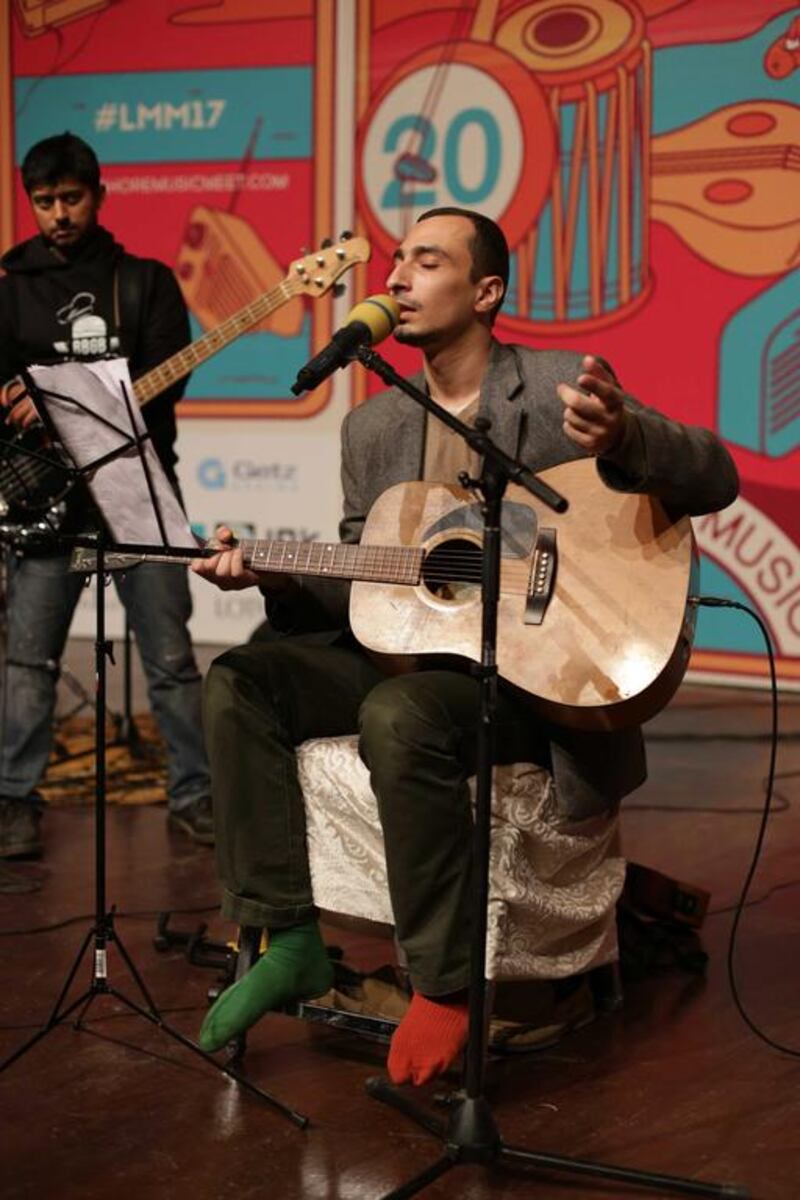“So we finally played a show after nearly two years,” said Lahore-based indie-rock band Poor Rich Boy on their Facebook page in March. The gig was at the Lahore Music Meet where musicians and fans come together from what is left of the Pakistani music scene.
Poor Rich Boy have been around for about a decade. Most of their time is currently spent in the studio working on their new album. But like most indie musicians, the need for money to fund recordings has risen and so the band decided to play a show to finance the album.
Their story began 10 years ago when Zain Ahsan, lead guitarist, met vocalist Shehzad Noor (Shezzy). They wrote songs together and travelled around Lahore playing in bookshops and ice-cream parlours.
“Along the way, we met musicians we admired and formed a group,” says Ahsan. “Eventually, we hit the recording studio and have been there since.”
They went on to represent Pakistan at the SXSW festival in Austin, Texas in 2015.
The band went through numerous changes after Shezzy left. Now comprising of Umer Khan (vocalist, who is also known as Duck), Sameer Ahmed (bassist), Ibrahim Akram (drums) and Ahsan – they are gearing up to release their third album, Almost Tuesday. Two singles have been released so far – Preacher and Cereal Killer.
"Duck wanted to go all socially-relevant this time around," says Ahsan. "If I'm not completely mistaken, [Preacher] is about the mental gymnastics of a person who sees institutional and institutionalised violence in his or her society but does not wish to take any steps to remedy the situation or even help out in any meaningful way."
Cereal Killer, on the other hand, is an old song that Duck put out on his own but that the band wanted to record with him. A video for the single was made with the help of two young fans.
“My songwriting ability isn’t quite where my ideas are. So a lot gets completely lost in the translation,” says Duck.
Poor Rich Boy have been compared to The Smiths. But the band has created their own sound unlike anything else in Pakistan. Musically, both songs have a distinct, clean, indie-rock sound but with darker lyrics and a greater multi-layered production. It seems the band has matured in its lyrical style, for example from “Don’t believe a thing that they say / it’s beautiful in the month of May” on their first album, to “If I told you there is reason; in the service of a lie: something insignificant, a teacher, must die.”
For now, the band are releasing one song from the self-released album at a time; the two singles are available to stream for free on websites such as Patari and Spotify. They still don’t have a plan for the price point for the album. In Pakistan, most bands don’t release physical albums anymore and go with the streaming model. “We’ll probably end up making a few hundred CDs to give out to our friends but mostly it’ll be released on electronic media: Spotify, iTunes and Patari,” says Ahsan. He doubts the band will earn much from the release but says, “but sometimes the work is its own reward”.
More live shows are now planned. In Pakistan, the sense of camaraderie between musicians is strong but those expecting monetary returns could be disappointed, according to Zain. Being an independent band in Pakistan is not easy and issues such as funding still hold back artists, who rely on live shows to grow.
“Unfortunately, there aren’t many opportunities for paid shows for indie musicians in Pakistan,” says Ahsan.
“Hence, some artists resort to session-playing for established local pop stars, who need real musicians when they tour. Others try to find meaning in religion. It isn’t easy, but nothing in life ever is.”
Zahra Salahuddin is a freelance journalist formerly based in Pakistan.





